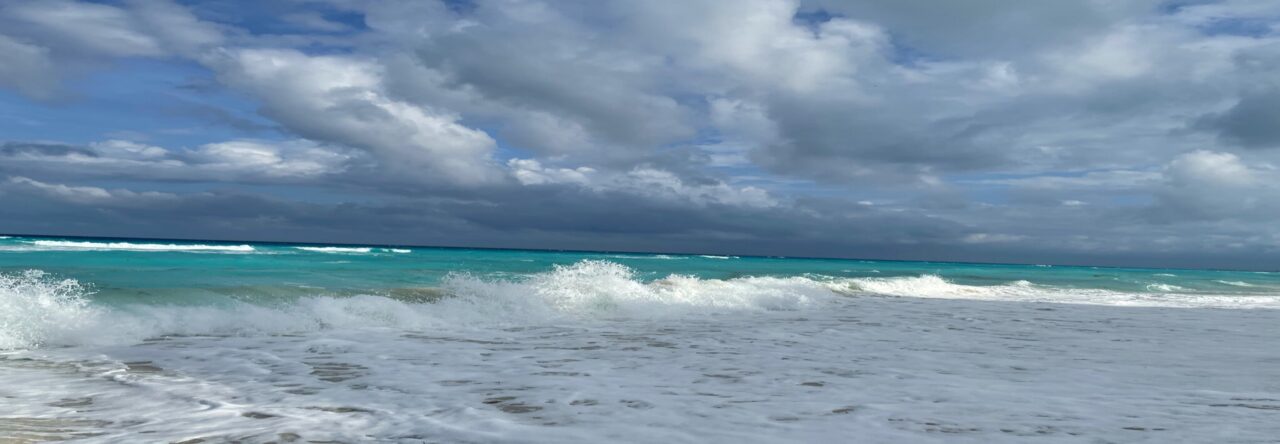
“Motherland,” an Oscar eligible short.
“Motherland” – This 24 minute 21 second short dealt with a couple–an Iranian man and a girl from Iowa— who are meeting the girl’s in-laws for the first time. The Jasmin Mozaffari film is set against the backdrop of the Iranian hostage crisis, which took place in 1979 and lasted for 444 days during the Carter administration. It was inspired by Jasmin’s father who married a woman from Alberta, Canada.
WRITER/DIRECTOR
“Motherland” was named as the Best Canadian Short Film at the Toronto International Film Festival. Mozzafari was named Best Director at the Aspen Shortsfest and her debut film “Firecracker” debuted in 2018 at the Toronto International Film Festival. Her short YASAMIN, based on her mother’s story of immigration, was a Grand Jury Prize Nominee at the 2018 AFI Film Festival. In 2022, she associate produced the short documentary “Longline of Ladies” which world premiered at the 2022 Sundance Film Festival and won the grand jury prize at SXSW.
Jasmine’s father, in real life, married a woman from Alberta, Canada. The New York Times compared Mozaffari’s directing style to “a young Andrea Arnold.” For those not familiar with Andrea Arnold, she directed “American Honey” in 2017, which won a BAFTA as Outstanding British Film of the Year. In 2022, Arnold was a nominee for the Best Documentary of the Year for “Cow,” a chilling look at the life (and death) of a cow on a dairy farm in England, with no dialogue and an absolutely chilling end for the cow of the title. Andrea Arnold was named “Most Promising Newcomer” in 2007 for her film “Red Road” and shared a 2010 Bafta for “Fish Tank” for Best British Film. Arnold directed “American Honey” in 2017 with Shia LaBoeuf and Riley Keough. It was a big winner at Cannes and in London at BAFTA, but the film was overlong and meandered.
If Jasmine Mozaffari is being compared to Andrea Arnold, she is in very good company.
PLOT
Babak, an Iranian medical student in school in Iowa, portrayed by Behtash Fazlali, is in love with Katie and they are on their way (in a car, like 3 out of 5 of these shorts) to meet Katie’s parents for Thanksgiving, 1979. As the film opens Babak—who resembles Al Pacino in “Serpico” with the full beard as the film opens—is being harassed by the locals in a confrontation with Americans who are incensed at the invasion of the embassy in Tehran. One of the Americans holds a poster that says: “Nuke ‘em until they glow. It worked in Japan. It’ll work in Iran.”
The couple meets up with, initially, just Katie’s mother at a dance hall type building that would be more at home in Texas or Oklahoma than in Iowa. I grew up in Iowa. Neither the landscape around the dance hall nor the dance hall itself seemed authentically “Iowan.” The surrounding landscape looked much more like Texas, from where I am while writing this.
CAST

“Motherland,” a short from Jasmin Mozaffari.
Katie’s mother, Ruth, played by Birgitte Solem, is polite but cool to the young man escorting her daughter. Katie’s (Oriana Leman) father doesn’t show up at all, at first. Later, her father, Werner Summer—extremely well-played by John Ralston—makes it clear to Bobak that “My daughter will not be your effing green card.” Bobak—who has even begun calling himself “Bob”—has, by this point, shaved his beard and is trying very hard to make a good impression. However, much like immigrants from other countries who are demonized, tensions were running high and much of the animosity was not based on reality, but on hearsay or propaganda. Originally, the Iranian students protesting the Shah who took over the Embassy had no intention of occupying it for long periods of time. It is interesting that many of those in positions of power that day went on to become highly-placed governmental figures.
I don’t doubt that there was hostility towards Iranians in the United States during this tense time in history. I lived through it as a teacher; it probably happened more in the cities, whereas I was in a relatively rural area in Illinois. I was teaching 7th and 8th grade students and had known one of the Iranian hostages from Jesup, Iowa. My students and I were very aware of the crisis and very concerned for the safety of the hostages.
CONCLUSION
Fourteen months later, on January 20, 1981, the Iranian hostages were released. This was announced by Reagan, although it was negotiated by Jimmy Carter. The protesters were angered that the United States allowed the Shah to enter the U.S. for medical treatment for cancer and that they would not return him for trial. $7.9billion in Iranian assets that had been seized was released to facilitate the release of the 52 hostages, not counting those who escaped posing as a film crew, as depicted in the film “Argo.” Nov. 4, 1979 was the beginning of the Iranian hostage situation; the end was January 20, 1981.
In “Motherland” I could not tell if the romance between Babak and Katie was going to go forward or if her parents’ hostility had killed it. They are (once again) in a car and the Thanksgiving, 1979 meeting with Katie’s parents did not go well. I can only assume that, since Jasmine’s father, IRL, did marry a Canadian woman, they work further on their relationship and rise above her parents’ opposition to it.

